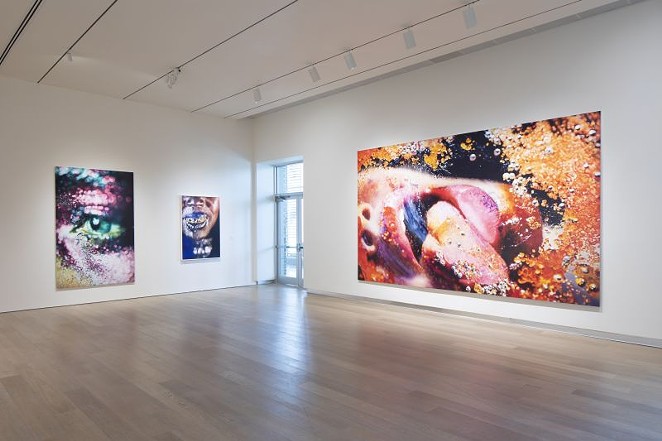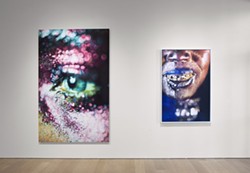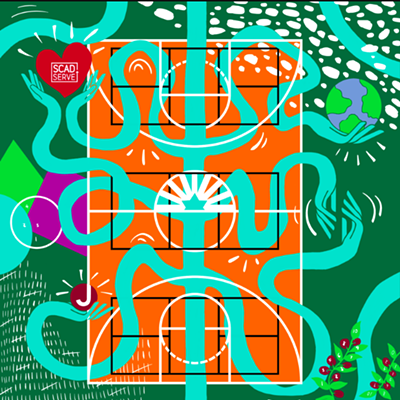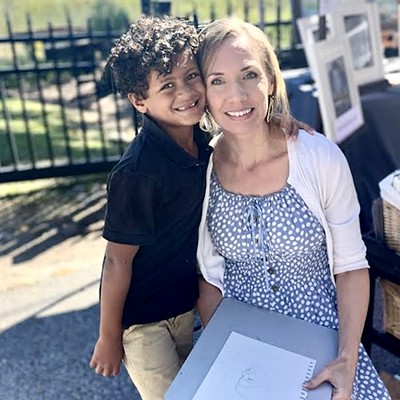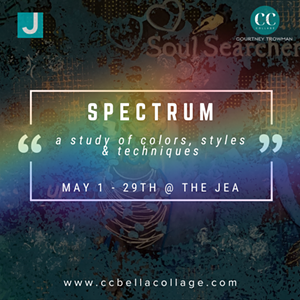MARILYN MINTER has been a fearless feminist artist since before it was acceptable to be one. She’s been creating work that pushed the limits for five decades, working in a variety of media and styles to get her message across.
Now, Minter is the honoree for SCAD’s deFINE ART 2020, and a selection of her work will be on view at the SCAD Museum of Art through the summer.
“Nasty Woman” is a selective survey of Minter’s career, taking the visitor on a journey through her early work. It includes work from her “100 Food Porn” series, which comments on the eroticism in food commercials, as well as her films “Green Pink Caviar” and “Smash,” which adopt the look of fashion advertising while embracing imperfection.
It’s not everyday that we get such a high caliber artist to Savannah, so definitely take the opportunity to see Minter’s work, or to hear from the artist herself.
Minter will give the SCAD deFINE ART keynote lecture on Wed., Feb. 19 at 6 p.m., and her exhibition will be on display at the museum through Aug. 2.
We had the pleasure of speaking with Minter via email last week.
What have you seen change, and not change, in terms of issues that women faced through the years you’ve been creating art?
Honestly, the issues women face are exactly the same but they have evolved. On the one hand, we’re still fighting for equal pay for equal work, bodily autonomy, and reproductive rights. On the other, there are a lot more opportunities for women in all fields and we have started to see a greater representation of women of color.
My generation of men rarely had powerful women in their lives. The women were mothers, nurses, stewardesses, teachers, etc. Those are important vocations, of course, but they were no female doctors, scientists, lawyers, or heads of universities. Younger generations are more used to women in power and are therefore more comfortable with it. My generation just didn’t perceive women that way, which made it that much harder for women to break through.
In the 80s, viewers didn’t really understand you or your art—you fought the patriarchy with your work, but women didn’t embrace that. What was that like for you as an artist?
I was and continue to be anti-patriarchy, but I don’t feel that I was too much woman. I just never tried to be a good girl or anything other than what I am. I got a tremendous amount of pushback in the ‘80s when I made paintings based on porn imagery. I thought that women should be able to own sexual imagery and pleasure. This didn’t seem vulgar to me–I assumed all feminists felt this way. So you can imagine my shock when I was basically kicked out of the art world. I was asking questions that I didn’t have answers to (still don’t) and people got really upset.
I would be lying if I said that being shunned by the art community didn’t make me doubt my work. But ultimately I stuck to what I knew was true and everyone else eventually caught up.
You’ve said that your work comments on the paradox that glamour gives us both pleasure and disappointment. Why is it important to you to capture that paradox?
I like to make room for that duality. Everything human is inherently shot through with imperfections. So removing or denying imperfection does not create perfection. It actually makes us unhealthy.
How does it feel to be the honoree at SCAD deFINE ART 2020?
Great, Ariella Wolens (Assistant Curator at SCAD Museum of Art) is a dream to work with.
What would you want younger artists, particularly female artists, to learn from you and your work?
I always tell my students that if something comes easily to you, that’s what you should be doing. I see it all the time, a young artist says, “Oh, it comes easy, it must not be any good.” So it’s my job to get them to see that it’s exactly what they’re supposed to be doing.
This is so important to me because I wrote off the skill I have for so long. I could draw or copy anything and I really loved doing it. But for the longest time, I didn’t think I could do that in my art. It was a game-changer when I finally gave in and made it work for me. Females and female artists tend to downplay their strength even more, so I try to empower them by nurturing their strengths.

